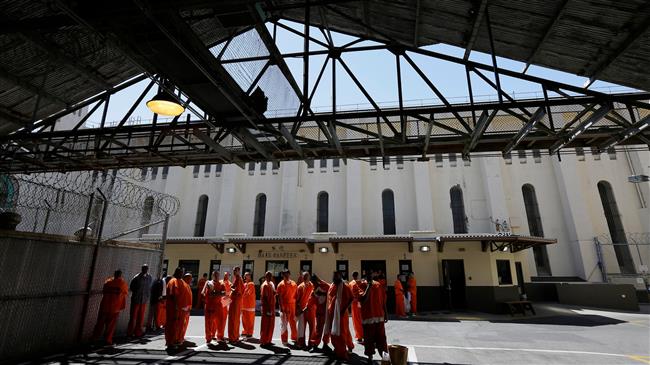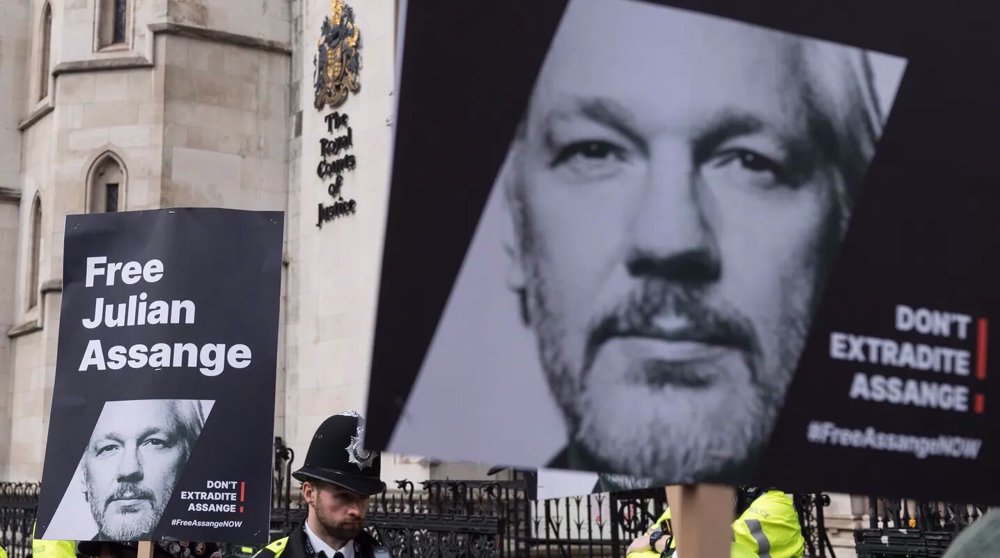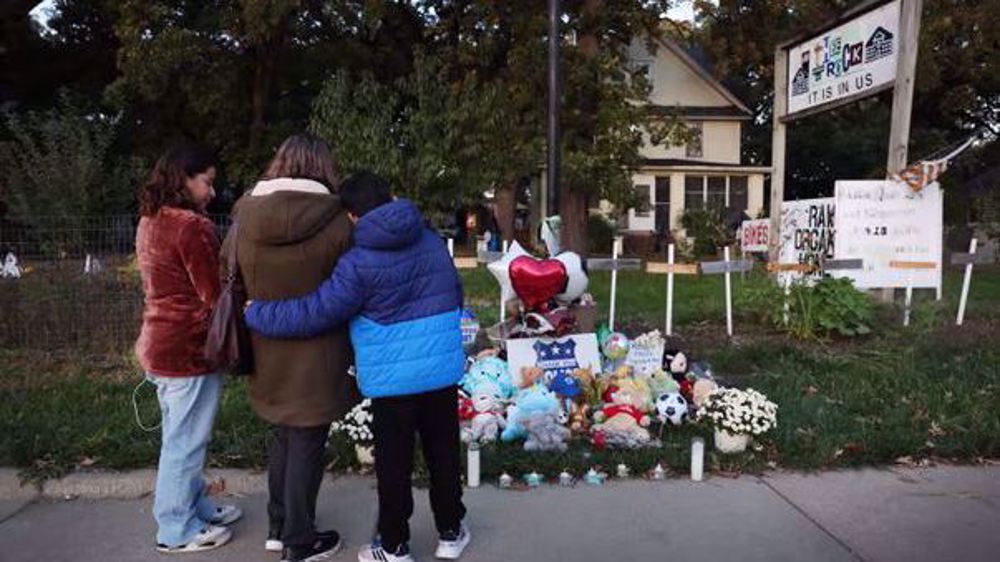US inmates stage nationwide prison labor strike over 'modern-day slavery'
Prisoners across the United Sates have started a protest where they are expected to refuse to work, hold sit-ins and even stage hunger strikes.
The United Sates has a massive army of 2.3 million incarcerated men and women which is by far the largest imprisoned population in the world. The event possibly will be the largest prison strike in American history.
The two-week strike, which started on Tuesday, is likely to put pressure on the US penal system. The protest leaders say the protest is aimed at ending "modern-day slavery." Prisoners complain they are paid pennies on the dollar per hour for labor.
The protest began on the anniversary of the assassination of jailed African American activist and inmate George Jackson, who was shot dead by a guard in 1971 after taking guards and two inmates hostage in a bid to escape from San Quentin State Prison in California.
National Prison Strike Begins: Prisoners in 17 States Demand End to “Slave Labor” Behind Bars https://t.co/dPcRyOAMar pic.twitter.com/QX8nA5YIsr
— Democracy Now! (@democracynow) August 21, 2018
In the first part of the strike, stoves will remain unlit in kitchens, ready-meals unheated and thousands of breakfasts uncooked.
Then the laundry will be left unwashed, prison corridors un-cleaned, and the lawns on the external grounds will remain untrimmed.
The last day of the strike on September 9 is the date when in 1971 the Attica Prison riots in New York began. The riots left more than 40 people dead when police stormed in to re-take the prison.
The strike is organized by Jailhouse Lawyers Speak, a network of imprisoned prisoner rights advocates based out of Lee Correctional Institution in South Carolina and backed by the Incarcerated Workers Organizing Committee (IWOC), a prisoner-led trade group.
“My brother makes 10 cents an hour"
— ChuckModi (@ChuckModi1) August 21, 2018
Please listen to the man break down U.S. slavery in 2018 at DC March for prisoners last August #PrisonStrike pic.twitter.com/kXLlXEDEAt
“Prisoner participation depends on their location and privilege status,” said Amani Sawari, a prison reform activist and spokesperson for the event. “If inmates are working they can suffocate the prison industrial complex by reducing their spending. In some detention facilities, prisoners may not be working so they might do a sit-in. It all depends.”
“Initially a strike was planned for 2019, but the Lee prisoners wanted a now-response. We want to make sure that things like this don't happen in the future,” said Sawari.
Jimmie Gardner spent 27 yrs in prison. He was innocent, 1 of 140 ppl where Trooper falsified evidence. Pls listen to his words from last August.#PrisonStrike is about ALL prisoners yet incredible how many are innocent too pic.twitter.com/1jPbZApK6h
— ChuckModi (@ChuckModi1) August 21, 2018
The prisoners released a list of 10 demands that includes the immediate improvement of prison policies, and an increase in prisoner wages. The inmates also call for more rehabilitation services and voting rights.
Experts have said that there is a chance that the strike may force authorities to introduce some changes in prisons.
Why Prisoners Are Going On Strike Today via @thenation https://t.co/BB6OgbGjYV
— Louise Auerhahn 🏳️🌈 (@LAuerhahn) August 21, 2018
"If the strike is widespread enough, it could be effective," said Lea Johnson, Professor of Law at the University of Florida Levin College of Law. "These circumstances like poor labor conditions, poor prison conditions, unpaid labor, and lack of access to mental health treatment exist seemingly behind closed doors. By going on a national strike, you pull back the curtain and it can force legislators to act."
Hamas to survive as Israel fails to destroy command centers, tunnels: US media
April 22: ‘Axis of Resistance’ operations against Israeli occupation
N Korea holds first ever 'nuclear trigger' drills, simulates counterattack
VIDEO | Press TV's news headlines
VIDEO | The Rise of Palestine Action
Pro-Palestinian protests gain momentum across US universities
Israel thirsty for murder, blood: Hamas on Gaza mass graves
VIDEO | Crimes and failures in Gaza










 This makes it easy to access the Press TV website
This makes it easy to access the Press TV website